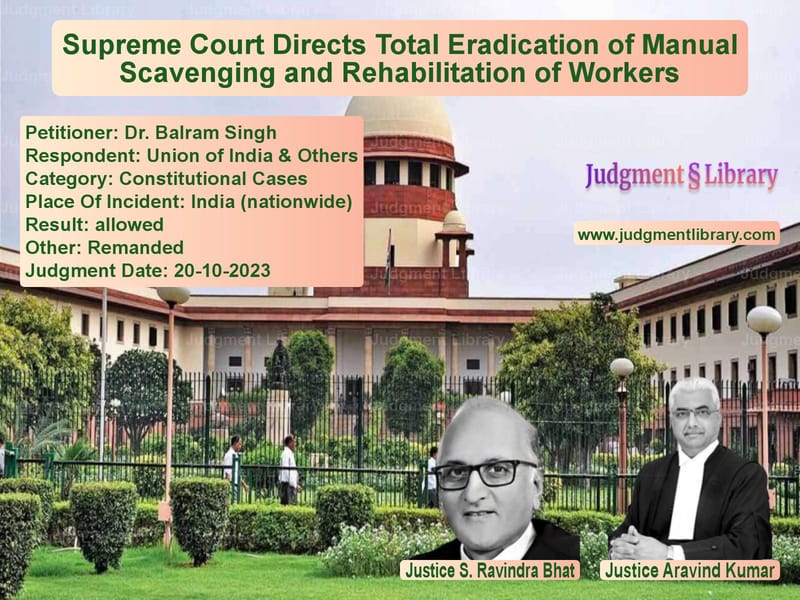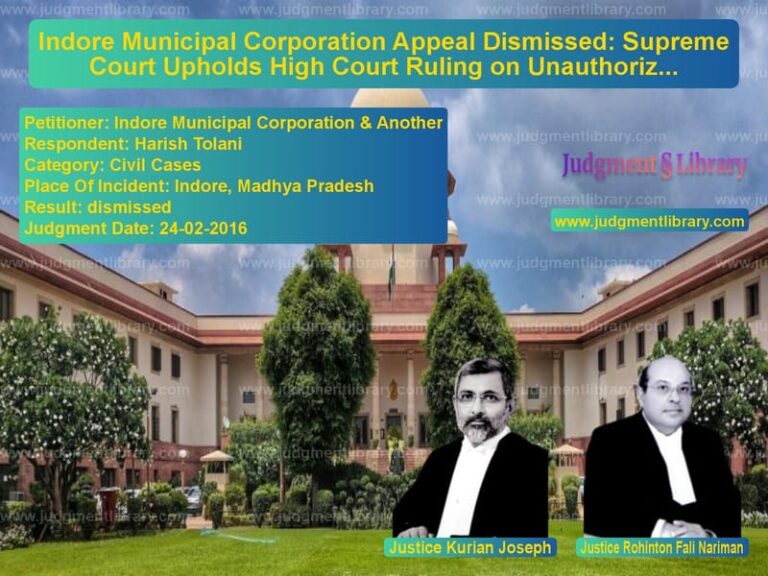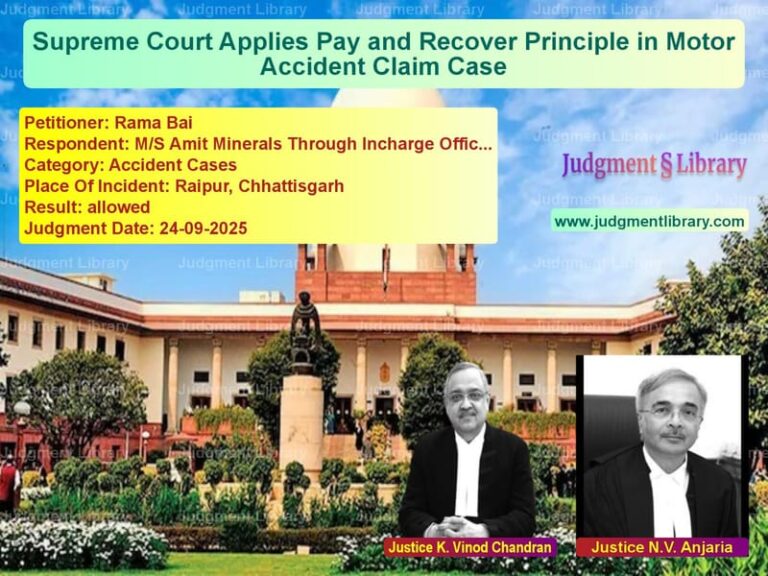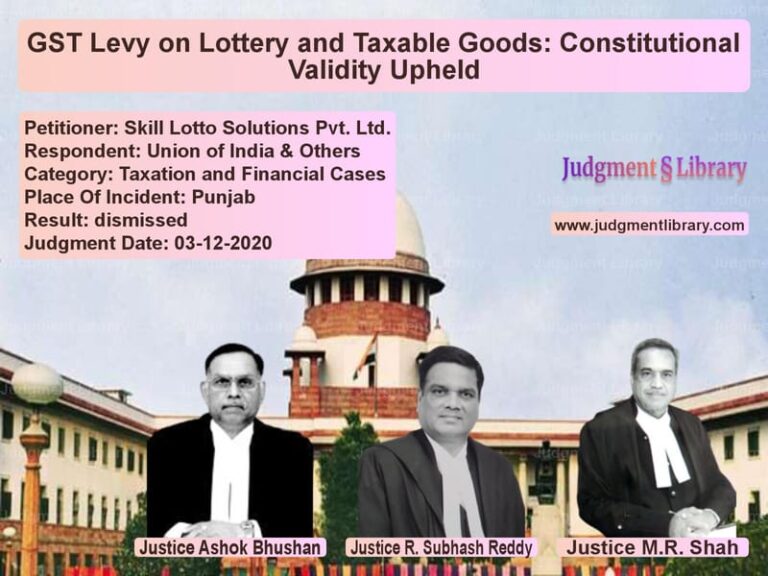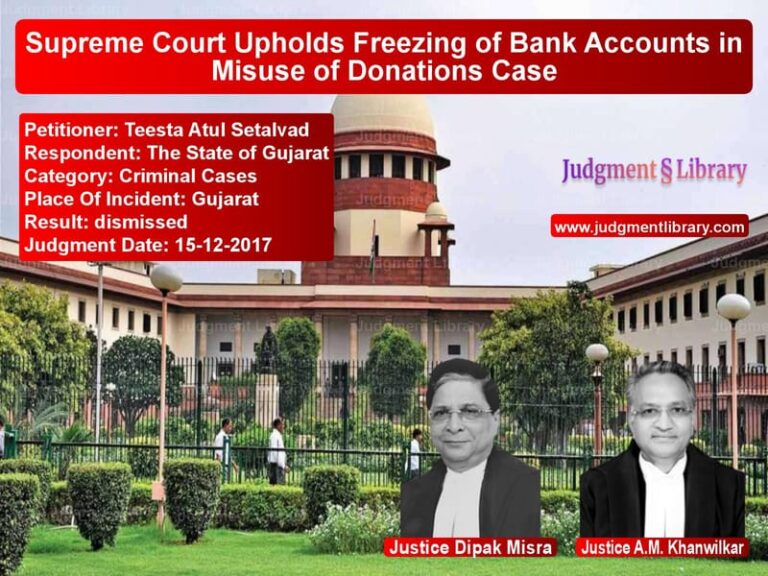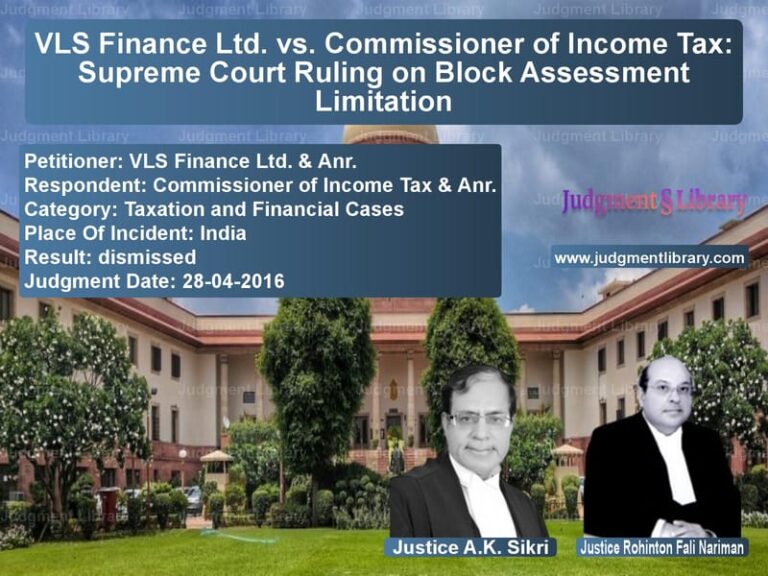Supreme Court Directs Total Eradication of Manual Scavenging and Rehabilitation of Workers
The Supreme Court of India has issued a landmark ruling in the case of Dr. Balram Singh v. Union of India & Others, directing the complete eradication of manual scavenging and ensuring full rehabilitation of affected workers. This judgment is significant as it addresses the historical injustices suffered by manual scavengers and provides a concrete framework for their upliftment and dignity.
Background of the Case
The case was initiated as a writ petition under Article 32 of the Constitution, seeking implementation of the provisions of the ‘Employment of Manual Scavengers and Construction of Dry Latrines (Prohibition) Act, 1993’ and the ‘Prohibition of Employment as Manual Scavengers and Their Rehabilitation Act, 2013’.
The petition highlighted the failure of the Union and State Governments in enforcing these laws, leading to the persistence of manual scavenging despite clear legislative prohibitions. The petitioner sought a blanket ban on manual scavenging and demanded rehabilitation measures, including employment opportunities, financial assistance, education, and health benefits for affected workers and their families.
Key Legal Provisions Involved
The judgment is rooted in constitutional guarantees and legislative measures aimed at eradicating manual scavenging. The key provisions include:
- Article 17: Prohibits untouchability in all forms.
- Article 23: Prohibits forced labor and other exploitative work conditions.
- Employment of Manual Scavengers and Construction of Dry Latrines (Prohibition) Act, 1993: Criminalizes the employment of manual scavengers.
- Prohibition of Employment as Manual Scavengers and Their Rehabilitation Act, 2013: Extends the definition of manual scavenging and provides for rehabilitation.
Petitioner’s Arguments
The petitioner, represented by legal counsel, contended:
- Despite the enactment of laws banning manual scavenging, the practice continues unabated due to poor enforcement.
- Many workers engaged in sewer cleaning and septic tank maintenance continue to work in hazardous conditions without protective equipment.
- The government has failed to conduct proper surveys to identify manual scavengers and provide rehabilitation.
- Compensation for sewer deaths has been inadequate and needs to be increased to ensure accountability.
- There is an urgent need for mechanization of sewer cleaning to eliminate human involvement.
Respondent’s Defense
The Union of India, along with other respondents, argued that:
- Significant steps have been taken to eradicate manual scavenging, including rehabilitation programs and financial assistance.
- Various state governments have set up monitoring committees to oversee implementation.
- The government has initiated the ‘Swachhata Abhiyaan’ mobile app to report insanitary latrines and manual scavenging instances.
- Financial aid and skill development programs are being provided to affected workers.
Supreme Court’s Observations
Failure of Implementation
The Supreme Court found that despite legal prohibitions, manual scavenging persists due to the failure of authorities in enforcing the law. The court remarked:
“The practice of manual scavenging is a blot on humanity. The government’s inaction in eliminating this practice violates the constitutional principles of equality, dignity, and fraternity.”
On Hazardous Sewer Cleaning
The court noted that hazardous cleaning of sewers and septic tanks amounts to forced labor under Article 23 of the Constitution:
“No person shall be made to enter a sewer or septic tank manually under any circumstances. The failure to provide adequate protective gear and mechanization is a direct violation of fundamental rights.”
Read also: https://judgmentlibrary.com/supreme-court-rules-in-favor-of-oci-student-in-neet-pg-admission-case/
On Compensation for Sewer Deaths
The court took serious note of deaths occurring due to hazardous cleaning and ordered an increase in compensation from Rs. 10 lakhs to Rs. 30 lakhs per deceased worker:
“Families of those who have lost their lives in sewer deaths must be provided not only financial compensation but also employment opportunities, education, and social security benefits.”
Final Directions Issued by the Court
The Supreme Court issued comprehensive directives to eliminate manual scavenging and ensure rehabilitation:
- Total Mechanization: The government must phase out all forms of manual scavenging by adopting mechanized sewer-cleaning equipment.
- Compensation for Deaths: The compensation for sewer-related deaths is increased to Rs. 30 lakhs.
- Employment and Education: At least one family member of a deceased or affected worker must be provided with employment or skill training.
- Survey and Identification: A fresh nationwide survey must be conducted to identify all manual scavengers and ensure their rehabilitation.
- Accountability for Negligence: Government officials failing to enforce the law shall be held personally accountable and penalized.
- Formation of Monitoring Committees: State and District-level vigilance committees must be set up to oversee implementation.
- Ban on Hazardous Cleaning: Entering sewers or septic tanks without mechanized equipment is now a criminal offense.
Impact of the Judgment
This judgment is a milestone in social justice, emphasizing the constitutional commitment to eradicate manual scavenging. The ruling ensures that affected workers receive the dignity, protection, and opportunities they deserve. The Supreme Court’s directives are expected to bring about a transformative change in sanitation work and uplift marginalized communities engaged in this hazardous practice.
Read also: https://judgmentlibrary.com/supreme-court-strengthens-protection-for-child-victims-under-pocso-act/
Petitioner Name: Dr. Balram Singh.Respondent Name: Union of India & Others.Judgment By: Justice S. Ravindra Bhat, Justice Aravind Kumar.Place Of Incident: India (nationwide).Judgment Date: 20-10-2023.
Don’t miss out on the full details! Download the complete judgment in PDF format below and gain valuable insights instantly!
Download Judgment: dr.-balram-singh-vs-union-of-india-&-oth-supreme-court-of-india-judgment-dated-20-10-2023.pdf
Directly Download Judgment: Directly download this Judgment
See all petitions in Fundamental Rights
See all petitions in Public Interest Litigation
See all petitions in Separation of Powers
See all petitions in Legislative Powers
See all petitions in Workplace Harassment
See all petitions in Judgment by S Ravindra Bhat
See all petitions in Judgment by Aravind Kumar
See all petitions in allowed
See all petitions in Remanded
See all petitions in supreme court of India judgments October 2023
See all petitions in 2023 judgments
See all posts in Constitutional Cases Category
See all allowed petitions in Constitutional Cases Category
See all Dismissed petitions in Constitutional Cases Category
See all partially allowed petitions in Constitutional Cases Category

